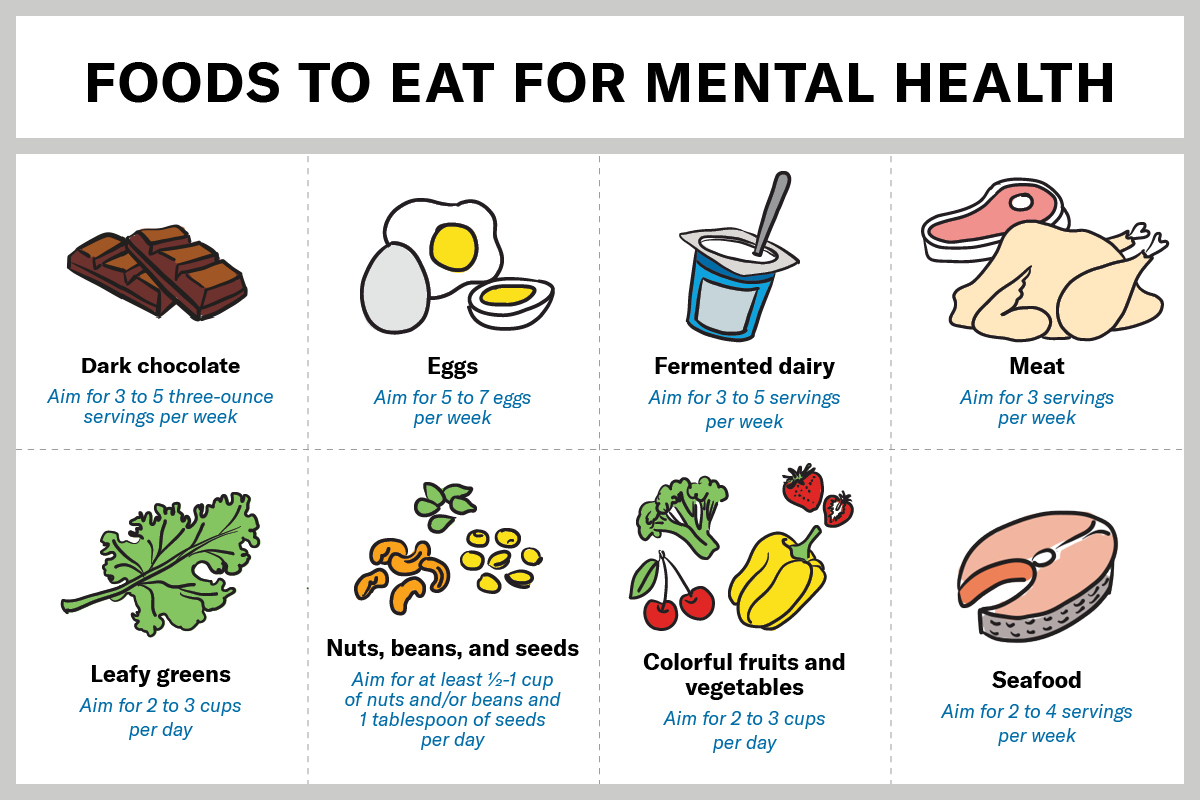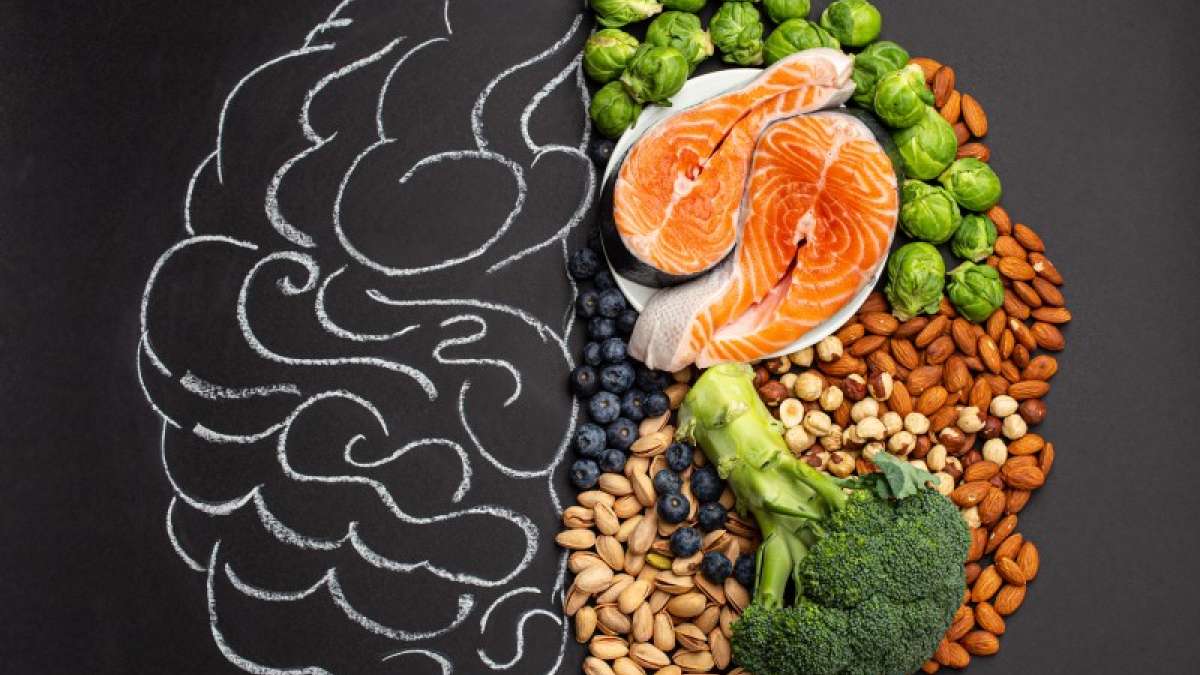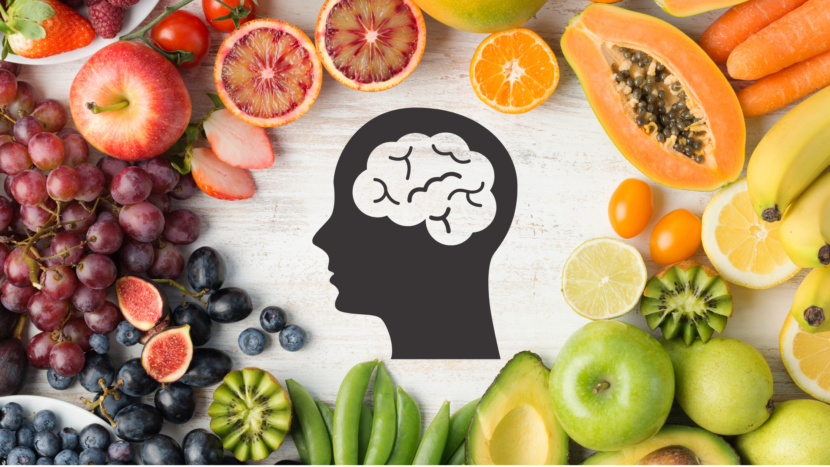In the realm of mental health, the spotlight often shines on therapy, medication, and lifestyle changes as primary avenues for treatment and prevention. However, one crucial aspect that is frequently overlooked is the profound impact of nutrition on mental well-being. As the understanding of mental health continues to evolve, researchers are increasingly uncovering the intricate interplay between what we eat and how we feel.
In this comprehensive exploration, we delve into the symbiotic relationship between nutrition and mental health, unraveling the scientific evidence, practical strategies, and holistic approaches that underscore the importance of nourishing the mind.

The Gut-Brain Connection:
The concept of the “gut-brain axis” serves as a cornerstone in understanding the bidirectional communication between the gastrointestinal tract and the central nervous system. Emerging research suggests that the health of our gut microbiota, comprised of trillions of microorganisms residing in our digestive system, profoundly influences brain function, mood regulation, and mental health.
Microbiome Diversity and Mental Health:
The relationship between gut microbiome diversity and mental health is a burgeoning field of research that has gained significant interest in recent years. The gut microbiome refers to the diverse community of microorganisms that inhabit the gastrointestinal tract, playing a crucial role in digestion, immune function, and overall health.
Emerging evidence suggests that the composition and diversity of gut bacteria may also influence brain function, mood regulation, and mental well-being through the intricate communication network known as the gut-brain axis.
Gut Microbiome Composition and Mental Health:
The gut microbiome is composed of trillions of microorganisms, including bacteria, viruses, fungi, and archaea, which collectively exert a profound influence on host physiology. Studies have shown that alterations in gut microbiome composition, characterized by changes in the abundance and diversity of specific microbial species, are associated with various mental health disorders, including depression, anxiety, and stress-related conditions.
Microbial Diversity and Mood Regulation:
A diverse and balanced gut microbiome is thought to support optimal brain function and mood regulation. Research suggests that greater microbial diversity within the gut is associated with improved mental health outcomes, including reduced symptoms of depression and anxiety. Conversely, decreased microbial diversity, often observed in individuals with certain mental health disorders, may contribute to dysregulation of the gut-brain axis and exacerbation of symptoms.

Role of Gut Microbes in Neurotransmitter Production:
Gut bacteria play a crucial role in the synthesis and metabolism of neurotransmitters, chemical messengers that regulate mood, cognition, and behavior. For example, certain species of gut bacteria are involved in the production of neurotransmitters such as serotonin, dopamine, and gamma-aminobutyric acid (GABA), which are known to influence mood and emotional states. Imbalances in gut microbial populations may disrupt neurotransmitter signaling pathways, potentially contributing to mood disorders.
Inflammation and Immune Activation:
Dysbiosis, or imbalance in the gut microbiome, can lead to increased intestinal permeability and systemic inflammation, which have been implicated in the pathophysiology of mental health disorders. Chronic inflammation and immune activation may directly affect brain function and mood through cytokine signaling and neuroinflammatory processes. Additionally, the gut microbiome interacts with the immune system to regulate immune responses and inflammatory pathways that impact mental health.
Impact of Diet and Lifestyle on Gut Microbiome Diversity:
Diet, lifestyle factors, and environmental exposures can profoundly influence gut microbiome composition and diversity. Consumption of a Western-style diet high in processed foods, sugar, and saturated fats has been associated with reduced microbial diversity and increased risk of mental health disorders. Conversely, dietary patterns rich in fiber, prebiotic foods, and fermented products support a diverse and healthy gut microbiome, which may confer protective effects against depression and anxiety.
Therapeutic Potential of Microbiome Modulation:
Strategies aimed at modulating the gut microbiome, such as probiotics, prebiotics, dietary interventions, and fecal microbiota transplantation (FMT), hold promise as adjunctive treatments for mental health disorders. Clinical trials investigating the effects of probiotic supplementation on mood and cognition have shown promising results, although further research is needed to elucidate the mechanisms of action and identify optimal treatment strategies.
In conclusion, the relationship between gut microbiome diversity and mental health represents a complex interplay between microbial communities, host physiology, and environmental factors. Understanding the role of the gut-brain axis in mental health disorders offers novel insights into potential therapeutic targets and interventions aimed at promoting microbial diversity and optimizing brain function.
Further research is needed to unravel the intricate mechanisms underlying this relationship and translate findings into innovative approaches for mental health management and treatment.

Nutritional Strategies for Mental Well-being:
Mediterranean Diet and Brain Health:
The Mediterranean diet, rich in fruits, vegetables, whole grains, fish, nuts, and olive oil, has been consistently associated with lower rates of depression and cognitive decline.
Key components of the Mediterranean diet, such as omega-3 fatty acids, antioxidants, and polyphenols, exert neuroprotective effects and support optimal brain function.
Omega-3 Fatty Acids and Mood Regulation:
Omega-3 fatty acids, found in fatty fish (e.g., salmon, mackerel), flaxseeds, chia seeds, and walnuts, play a vital role in brain health and mood regulation.
Supplementation with omega-3 fatty acids has been shown to alleviate symptoms of depression, bipolar disorder, and anxiety, potentially due to their anti-inflammatory and neurotransmitter-modulating properties.
Probiotics and Mental Health:
Probiotics, beneficial bacteria found in fermented foods like yogurt, kefir, kimchi, and sauerkraut, have been implicated in improving mood and reducing symptoms of depression and anxiety.
Probiotics modulate inflammation, enhance neurotransmitter production, and strengthen the gut barrier, all of which contribute to improved mental well-being.
Nutrient Deficiencies and Mental Disorders:
Deficiencies in essential nutrients such as vitamins B12, folate, and minerals like zinc and magnesium have been linked to an increased risk of depression, anxiety, and other mental health disorders.
Addressing nutrient deficiencies through diet modification or supplementation can complement traditional treatment approaches and enhance therapeutic outcomes.
Practical Tips for Promoting Mental Health through Nutrition:
Prioritize Whole, Nutrient-Dense Foods:
Focus on incorporating whole, minimally processed foods into your diet. Opt for colorful fruits and vegetables, whole grains, lean proteins such as poultry, fish, beans, and nuts, as well as healthy fats like avocado, olive oil, and nuts. These foods are rich in essential nutrients, antioxidants, and fiber, which support overall health and contribute to better mood regulation.
Balanced Macronutrients:
Ensure a balance of macronutrients in your meals to maintain stable blood sugar levels and provide sustained energy throughout the day. Aim to include a source of protein, carbohydrates, and healthy fats in each meal. Protein-rich foods help regulate neurotransmitter production, carbohydrates provide energy for the brain, and healthy fats support cognitive function and mood stability.
Mindful Eating Practices:
Cultivate mindfulness around eating by paying attention to hunger and fullness cues, as well as the sensory experience of eating. Practice eating without distractions, such as television or smartphones, to fully savor the flavors and textures of your food. Engage all your senses while eating, and take time to appreciate the nourishment your meal provides both physically and emotionally.
Stay Hydrated:
Proper hydration is essential for optimal brain function and mental well-being. Drink plenty of water throughout the day to stay hydrated, as even mild dehydration can affect mood, cognition, and energy levels. Limit consumption of sugary beverages and excessive caffeine, as they can disrupt hydration and contribute to mood swings and fatigue.
Incorporate Omega-3 Fatty Acids:
Include sources of omega-3 fatty acids in your diet, such as fatty fish (salmon, mackerel, sardines), flaxseeds, chia seeds, and walnuts. Omega-3 fatty acids play a crucial role in brain health and mood regulation, and their consumption has been linked to reduced risk of depression and anxiety. Aim to incorporate omega-3-rich foods into your meals regularly or consider supplementation if necessary.
Limit Refined Sugars and Processed Foods:
Minimize consumption of refined sugars, processed foods, and artificial additives, as they can negatively impact mood, energy levels, and overall mental health. These foods often lead to fluctuations in blood sugar levels and inflammation, which can contribute to mood swings, fatigue, and cognitive impairment. Instead, opt for whole, unprocessed foods that nourish your body and support mental well-being.
Include Probiotic-Rich Foods:
Incorporate probiotic-rich foods into your diet to support gut health and promote mental well-being. Fermented foods such as yogurt, kefir, kimchi, sauerkraut, and kombucha are rich sources of beneficial bacteria that contribute to a healthy microbiome. Consuming probiotic-rich foods regularly can help maintain gut microbial balance, reduce inflammation, and support mood regulation.
Plan and Prepare Meals:
Take time to plan and prepare nutritious meals ahead of time to ensure you have healthy options readily available. Batch cooking and meal prepping can save time and make it easier to stick to a balanced diet, even during busy days. Stock your kitchen with healthy ingredients and snacks to minimize reliance on convenience foods and make healthy choices more accessible.
Seek Professional Guidance if Necessary:
If you have specific dietary concerns or mental health issues, consider seeking guidance from a registered dietitian or mental health professional. They can provide personalized recommendations tailored to your individual needs and help you develop a nutrition plan that supports your mental well-being.
By incorporating these practical tips into your daily routine, you can harness the power of nutrition to promote mental health and emotional well-being. Remember that small changes can have a significant impact over time, and prioritizing nourishing foods and mindful eating practices can contribute to a healthier mind and body.
Conclusion:
In the quest for mental well-being, nutrition emerges as a powerful ally, offering a holistic approach that integrates mind, body, and spirit. From the intricate interplay between the gut and the brain to the therapeutic potential of nutrient-rich foods, the evidence supporting the connection between nutrition and mental health continues to grow. You can click here now to learn the role of nutrition in mental health.
By adopting a diet that nourishes both body and mind, and incorporating mindful eating practices into our daily lives, we pave the way for greater resilience, vitality, and emotional equilibrium.
As we embrace the profound impact of nutrition on mental health, let us embark on a journey of self-discovery and self-care, recognizing that the food we choose to nourish ourselves with has the power to shape not only our bodies but also our minds and souls.
